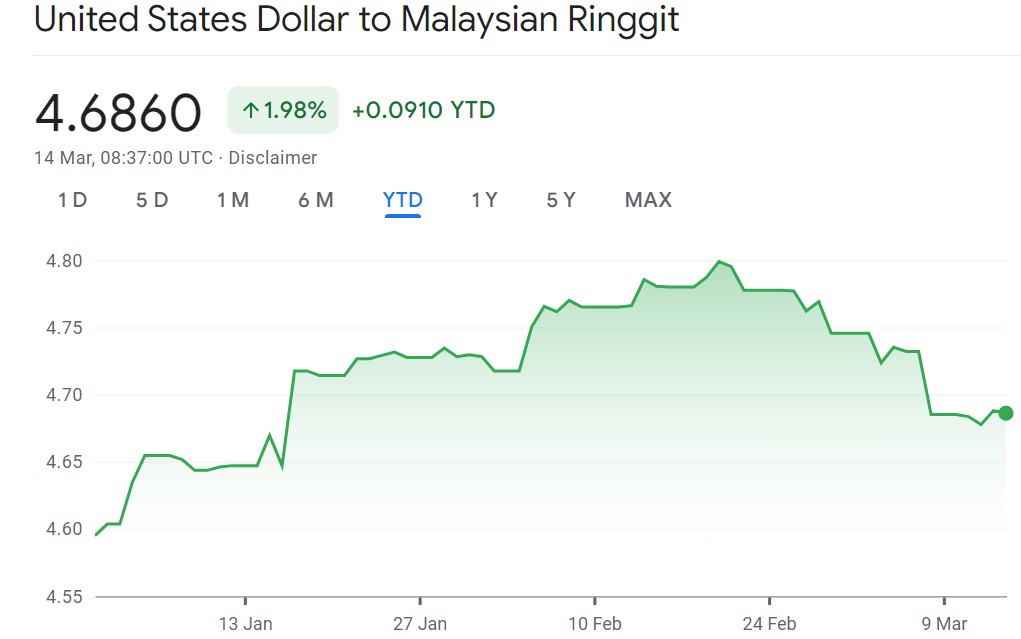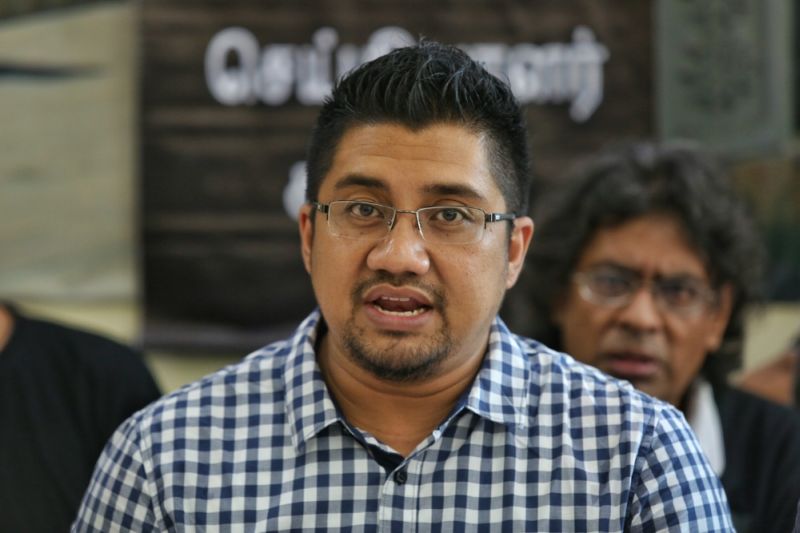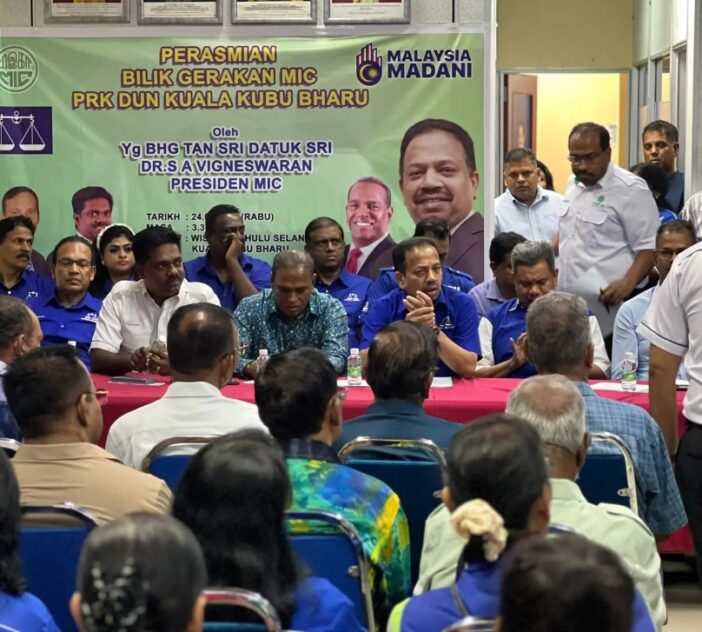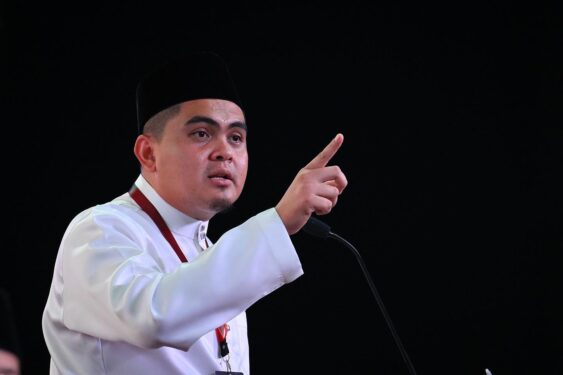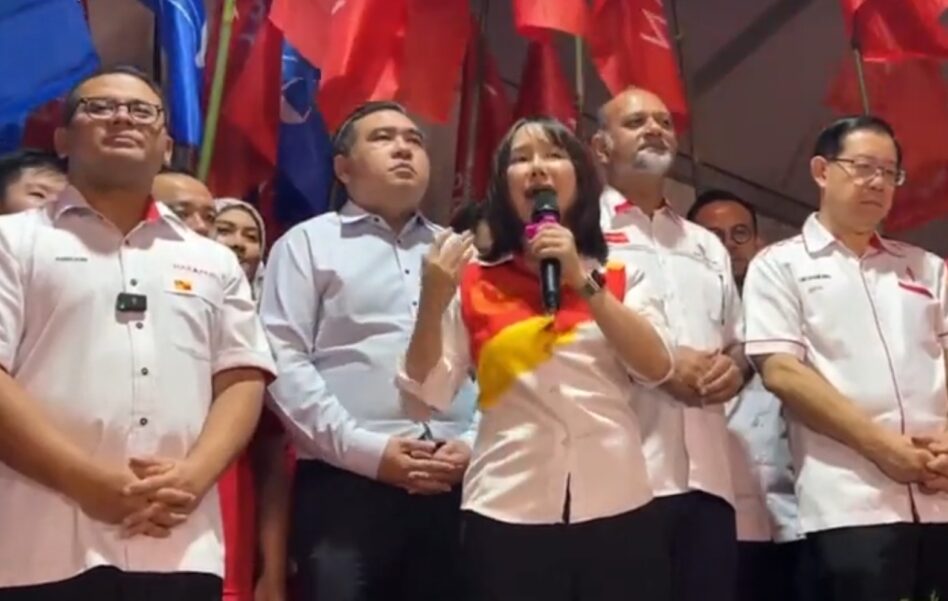SINCE the ringgit was de-pegged in 2005, the local currency had depreciated by an average rate of 1.0% per annum to end 2023 with an average exchange rate of RM4.5605 against the greenback compared to RM3.7871 in 2005.
Throughout the 18 years (2005-2023), the ringgit had strengthened in seven years: 2006 (+3.2%; RM3.6682/US$); 2007 (+6.7%; RM3.4375); 2008 (+3.1%; RM3.3333); 2010 (+9.4%; RM3.2211); 2011 (+5.3%; RM3.0600); 2018 (+6.6%; RM4.0351); and in 2021 (+1.5%; RM4.1433).
During the nine years of depreciation, the ringgit fell the most in 2015 with a 16.2% depreciation against the US dollar to average RM3.9055 from RM3.2729 in 2014.
This was influenced by a mix of external factors (economic shocks, crash of crude oil price, the US Federal Reserve’s tantrum and normalisation of interest rates) and domestic concerns/issues (economic growth prospects, inflation, IMDB scandal, political uncertainty, and concerns about the fiscal deficit and debt).
Speculative forces and weak sentiments also played a part. There were two distinctive periods displaying the ringgit’s performance since it was de-pegged in July 2005.
The ringgit had appreciated by 15.7% in 2005-2014 but reversed to depreciate against the greenback since 2015 with the local currency registering an average exchange rate between RM4.0351 and RM4.5606 against the US dollar in 2016-2023.
Despite Malaysia’s interest rate – as benchmarked by the overnight policy rate (OPR) – was set at between 1.75% and 3.25% which was higher than the US Fed Funds rate (0.25%-2.50%) during the period 2015-February 2022 – the ringgit mostly printed at least RM4.00/US$ except for brief months averaging below RM4.00 before and during the 14th General Election (January-May 2018, April 2016 and January-July 2015).
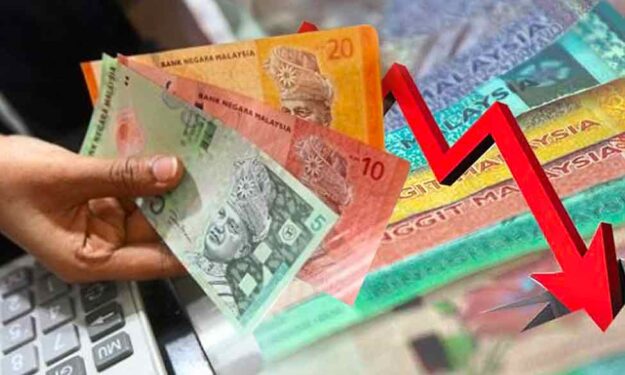
- First consideration (Strengthening the foundations for growth)
While we reckon positive economic growth for this year, the challenge is to sustain quality and higher future growth prospects.
The unity government faces mounting fiscal challenges from persistent budget deficits and rising debt burdens as well as sizeable additional future spending pressures.
A weak fiscal consolidation questions fiscal sustainability. One welcome move is enactment of the Public Finance and Fiscal Responsibility Act which set the fiscal sustainability parameters (expenditure, fiscal deficit, debt and financial guarantee).
Some price and subsidy reform measures have started to implement in phases, stronger efforts are needed to contain spending growth and design a sustainable revenue stream, instead of ad-hoc revenue measures.
- Second consideration (Restoring confidence of economic agents on macroeconomic variables)
It has been long established that lack of the confidence was one of the main reasons behind the financial and economic crises. Confidence is a self-fulfilling prophecy.
Therefore, the government and policy makers must act quickly to restore confidence among Malaysians as well as to improve investors’ sentiment that it is able to manage the impact of the ringgit’s depreciation on the economy, businesses and households.
Constructive engagement through opening and maintaining channels of communication between the government and private sector can make an important contribution to enhance confidence of economic agents. As consumer confidence increase, their demand for foreign currency will decrease and value of domestic currency will increase.
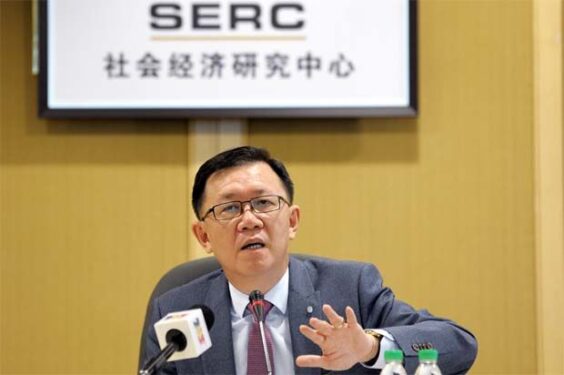
- Third consideration (Sustainable investment climate)
The unity government has launched the Economy Madani Framework to make Malaysia a regional economic powerhouse; New Industrial Master Plan 2030 to drive manufacturing transformation; and the National Energy Transition Roadmap (NETR) to facilitate and drive sustainable practices and green initiative.
There were three successive years of substantial approved investments totalling RM906.7 bil between 2021 and 2023 (2019-2020: RM228.1 bil), of which RM513.0 bil or 56.6% of the total was foreign investment.
This suggests that Malaysia remains attractive to foreign investors. The realisation of investment in the years ahead will boost the national output and income as well as generate jobs. For the period 2016- June 2023, the realisation of approved investment in the manufacturing sector was about 85%.
Strong execution of the plan and initiatives are critical to convince both domestic and foreign investors that Malaysia is firmly committed towards making conducive investment climate to attract high quality, durable investment and support sustainable and inclusive economic growth.

Transparent, consistency and predictable policy and market conditions not only help attract foreign investors but also help spur domestic investment. Remove barriers that may hinder equal opportunities for all.
The bottom line is the ringgit exchange rate is one of the most important determinants of a country’s relative level of economic health and relative competitiveness in the terms of trade as well as the capital movements in terms of real rate of return on investment.
While exchange rates are determined by numerous complex external and domestic factors, the government has to offer compelling economic and investment proposition as well as strong corporate earnings prospects to lure more foreign investors and domestic investors to invest in domestic asset classes.
As of end-January 2024, Malaysians (individuals and corporates) have placed RM247.4 bil worth of foreign currencies deposit (equivalent to 10.4% of total banking system deposit) which is a big jump from RM53.5 bil or 4.7% of total deposit at end-2010.
Domestic residents’ portfolio outflows investing in equities, investible funds and bonds were larger at RM28.9 bil per year in 2010-2023.
In addition to strengthening the shrinking current account surpluses and reduce services outflows, we also have to strengthen the financial account (which measures foreign money flowing into the country and domestic residents’ money investing abroad). – March 14, 2024
Lee Heng Guie is the executive director at Socio-Economic Research Centre (SERC) Malaysia.
The views expressed are solely of the author and do not necessarily reflect those of Focus Malaysia.


